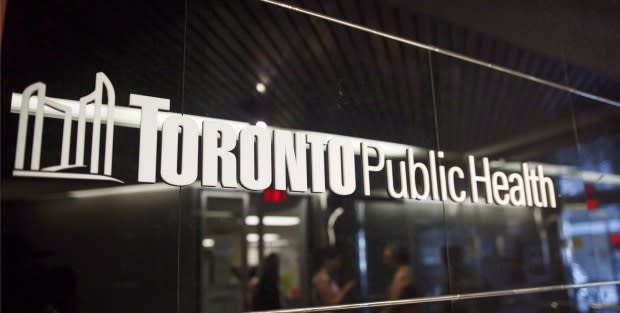City employees question why they weren't alerted after colleague tested positive for COVID-19
Some city employees are questioning why they and the public weren't directly informed by health officials and their local union about a confirmed case of COVID-19 in a worker in the parks, forestry and recreation division earlier this month.
The Canadian Union of Public Employees (CUPE) Local 79 confirmed the case on Sunday after it was contacted by CBC Toronto and said the staff member and a number of people who may have had close contact with them were advised to go into isolation.
The employee worked at Falstaff Community Centre, near Jane Street and Wilson Avenue, said Dave Mitchell, president of CUPE Local 79. The local represents about 20,000 inside city workers.
The staff member received a positive test result for the novel coronavirus on Sept.11 and the local union was informed the next day, he added.
Two city workers who spoke to CBC Toronto on condition of anonymity for fear of comprising their employment criticized how information about the confirmed case of COVID-19 was communicated.
"Nobody knew anything, we had just had a union meeting but nothing was sent out on the portal, nothing was sent out to members," said one city staff member.
"Staff wasn't made aware and the public wasn't made aware. These communities needed to know about this case sooner," they added.
Toronto Public Health (TPH) did not notify the public about the case, despite doing so for two previous cases involving its parks, forestry and recreation division.
In July, there were two positive cases involving employees, one of whom had contact with a worker at a summer camp at Ellesmere Community Centre. And in August, there was a confirmed case involving a child attending a summer camp at the Barbara Frum Community Centre.
One of the workers questioned why TPH, the city and CUPE 79 Local declined to make the case public once it was confirmed.
"The city, public health and the unions need to do their due diligence to protect staff and residents who may or may not have come into contact with COVID-19. They've all dropped the ball," they said. "Are these lives not as valuable? Are these residents and staff not as valuable, so you hope it goes away quietly and nobody will notice?"
The other city staff member who spoke to CBC Toronto said that the employee who tested positive for COVID-19 was in fact based at York Recreation Centre, near Eglinton Avenue West and Black Creek Drive, and spent time at that facility and Falstaff Community Centre the week they started showing symptoms of COVID-19. Mitchell, the union local president, would not confirm that was indeed the case.
The worker added that there are concerns among staff about potential exposure to COVID-19 at both facilities, and that summer camps were underway the same week the infected employee was tested.
Mitchell conceded that there is a larger group of union members, outside of the infected worker's close contacts, who only found out about the case through word of mouth. But criticizing the city or its public health unit for any perceived lack of communication about the case is not helpful, he said.
"It's really important to me, as the local president, that I'm not overwhelming people with the same information and information that may be confusing shortly after delivered," Mitchell said.
"The communication needs to be streamlined, if anything. I think everyone's trying to do the best job. And I certainly feel for our members who hear this information secondhand. It must be frightening."
City said 'deep cleaning' conducted after case reported
In an email sent Sunday, the city said that the parks, forestry and recreation division conducted a "deep cleaning" after the case was reported.

TPH said that it is working with the division to trace and notify contacts of the infected person. Close contacts of the infected person have been advised to go into isolation for 14 days.
Dr. Vinita Dubey, associate medical officer of health, confirmed the positive case but declined to say where the infected person worked. She added that TPH would only published a public news release about a case "if there a broader potential health risk to the public."
"To protect people's privacy and personal health information, we do not provide information that could identify an individual case or their close contacts," Dubey said in the email.
"While we recognize the desire to have access to more information, we must balance the public health reason for the release of the information and the right to privacy by individual cases."
TPH says contact tracing begins immediately
When it is notified of a positive case in Toronto, TPH said it acts on information immediately.
An investigator will interview the person who tested positive, determine where he or she might have gotten the infection and try to pinpoint to whom he or she could have spread the disease.
Tracing contacts includes contacting people who had interactions with the infected person while he or she was infectious.
When there are positive cases in local workplaces, including city divisions, Dubey said, TPH works to ensure prevention measures are in place to prevent further virus spread.
These measures include: scheduling staggered shifts; screening before entering the workplace; physical barriers; physical distancing; and appropriate use of personal protective equipment, including masks.

